The Social Impact Heroes of Social Media: “If your bathroom sink is overflowing, you don’t reach for the mop to soak up the overflow, you turn off the tap.” with Kate Nelson and Candice Georgiadis
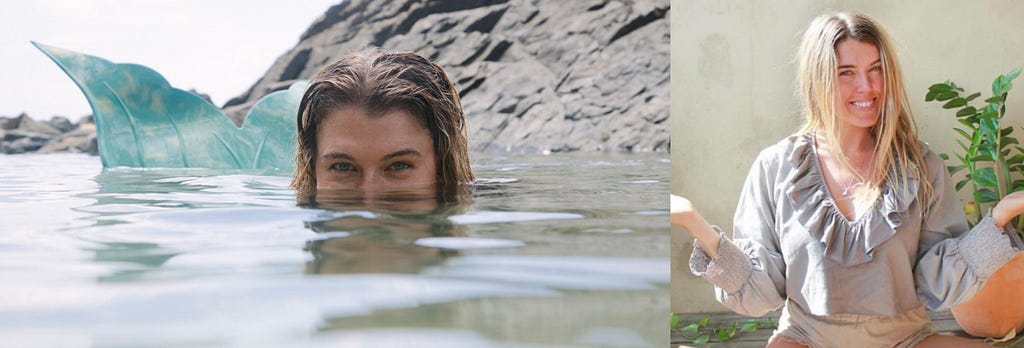
There’s a great analogy used in Plastics. If your bathroom sink is overflowing, you don’t reach for the mop to soak up the overflow, you turn off the tap. This is what we need to do with plastics.
1) We need to stop the plastic at its source and lobby for less plastic production. An increase in recycled plastics would be beneficial — anything to prevent further extraction of these petroleum-based items that are polluting our environment that we all rely upon to survive.
2) Corporations must produce less plastic packaging, less plastic products, and especially, stop using virgin plastics for their materials. We need more laws and enforcement of said laws to restrict the irresponsible distribution of plastic.
3) We need greater regulation of full lifecycle analysis for product duration. Effectively closing the loop on products that are bad for the environment. This didn’t seem to be a problem since we thought recycling worked, however now that we know recycling is broken, we need more systems in place that actually work.
Our community, society, and our politicians have a lot to do to address the root of this problem.
I had the pleasure of interviewing Kate Nelson, an environmentalist, entrepreneur, yogi, mermaid, and goddess who has been disposable plastic-free for over a decade. She began her journey with a dream to change the way people viewed environmentalism; to inspire a movement by celebrating the Earth and by living consciously and sustainably. She uses her platform Plastic Free Mermaid to educate and inform her followers on how to live a more sustainable lifestyle.
Thank you so much for doing this with us! Can you tell us a story about what brought you to this specific career path?
I got started with my plastic-free lifestyle 11 years ago when I was volunteering for Jean Michel Cousteau’s Ocean Futures Society. There I learned that plastic does not biodegrade and that it was ending up in the ocean. I studied under Dr. Andrea Neal, who taught me that plastics were ending up in Gyres swirling around and rather than biodegrading they were breaking up into smaller plastics that resemble little sea creatures like plankton.
I decided to take action immediately, and I quit plastics. This dramatic change in my lifestyle brought me to the career path I have as an environmental activist and someone that people follow online for advice on how to live plastic-free.
Rather than force people or badger others to make this, I decided to inspire people. Through my commitment or absolutely no plastic, people around and people online started noticing me, and I gained credibility through keeping this commitment not to use plastics. Eventually, people began wanting to learn how I did it and wanted to make changes themselves, so I started to share more about my life on a larger scale through my blog and my Instagram @plasticfreemermaid.
When I stopped using plastic, my relationship with nature evolved. I had to find alternatives and seek out unpackaged goods. I turned to all natural products; aloe vera, flowers, herbs, Jasmine, honey, beeswax, mint leaves, and chamomile flowers. My journey and career path are as organic as it comes — I came into this wanting to reduce my environmental impact and footprint.
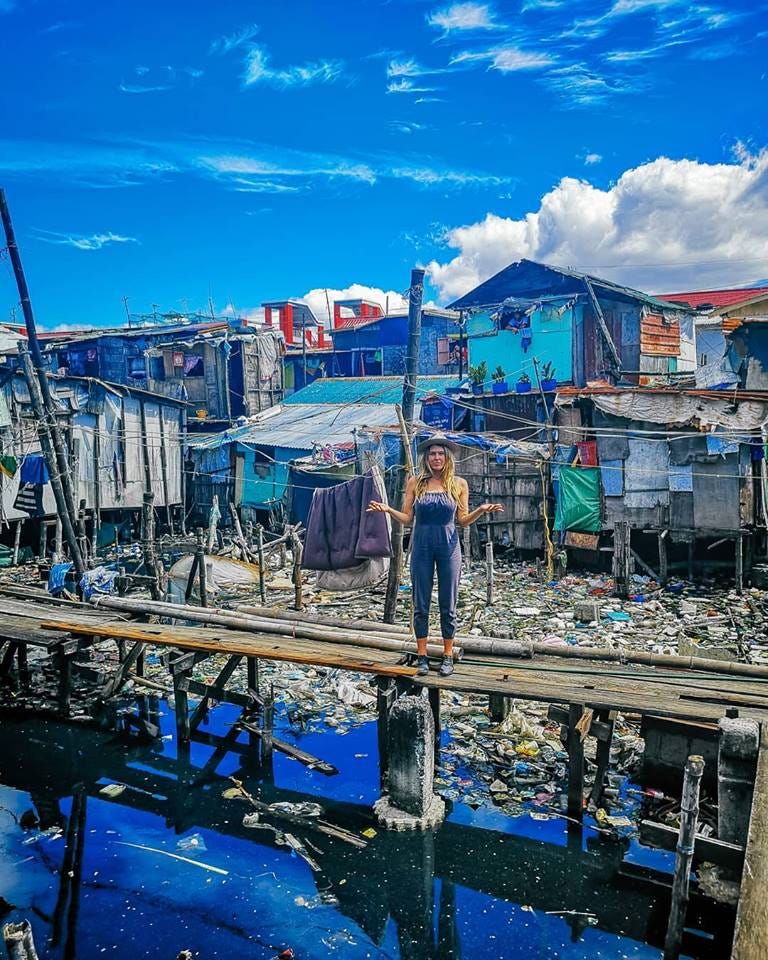
Can you share the most interesting story that happened to you since you began this career?
Last year I went to East Java, Indonesia to track where the majority of the Western world’s trash ends up. It was shocking to see how much waste was from the United States, the UK, Canada, and Australia.
The majority of the villagers on the remote island had never left their village, yet they were dealing with the trash from all over the world. It was a bizarre thing to witness — these people had to become experts on recycling.
One man sat on the dirt ground with a makeshift bamboo structure above him. He sorted through a pile of trash and divvied up different plastics into 20 palm woven baskets. He put each basket into a bag that went to one of the other makeshift bamboo recycling structures further up the river, or the bags went to the giant piles of plastic bags lining the dirt road of the village.
The makeshift bamboo recycling centers further up the river were so rudimentary it made your jaw drop. They shredded plastic and diverted river water to clean the plastic. They then stashed the shredded plastic into bags and hoped it would sell to recycling centers.
As a result, the river turned into a thick white sludge after rinsing all of the plastic wrappers that contained everything from margarine to toothpaste. It was incredibly eye-opening and motivating to ramp up my advocacy and education platform.
Can you share a story about the funniest mistake you made when you were first starting? Can you tell us what lesson you learned from that?
As you can imagine becoming plastic-free is almost impossible. There are so many people whose job it is to give you plastic, whether it be a bartender putting a straw in your drink or to someone quickly bagging something up for you.
I’ve become hyper-aware of this and can almost always spot this before it happens. I can’t read minds, so sometimes it still happens before I can say anything. I try and turn those situations into learning opportunities for my followers by filming them or by merely explaining that I am plastic-free and education, he proprietor why.
Ok super. Let’s now jump to the core focus of our interview. Can you describe to our readers how you are using your platform to make a significant social impact?
I use my platform to inspire change. When I began, I was frustrated by the doomsday feeling of the environmental movement. I didn’t want to talk about dead turtles; I wanted to celebrate living turtles, the beauty of flowers, rainbows, and incredible waterfalls. I wanted to inspire people to be more connected to the magic of nature. Moreover, so my approach has been less about the problem and more about the solution.
I use the platform to share recipes for products I make at home. It is a place for learning, sharing, and community. I also share what I know about environmental activism and deep ecology — it is truly a place for growth.
I intend for my community to feel empowered to make changes on the individual level as well as go out and step up as activists in their community. I remind my followers that I am one person, and if they believe that I made a difference that they can make a difference too.
I feel so fortunate to have social media as a tool to share but also to connect with people. I continuously share stories on my feed, which is a window into my lifestyle. These messages come from the heart and a place of gratitude, and I feel that.
It is so fulfilling to hear these stories and see how small changes add up and make a difference and ripple outward to inspire others. It keeps me going.
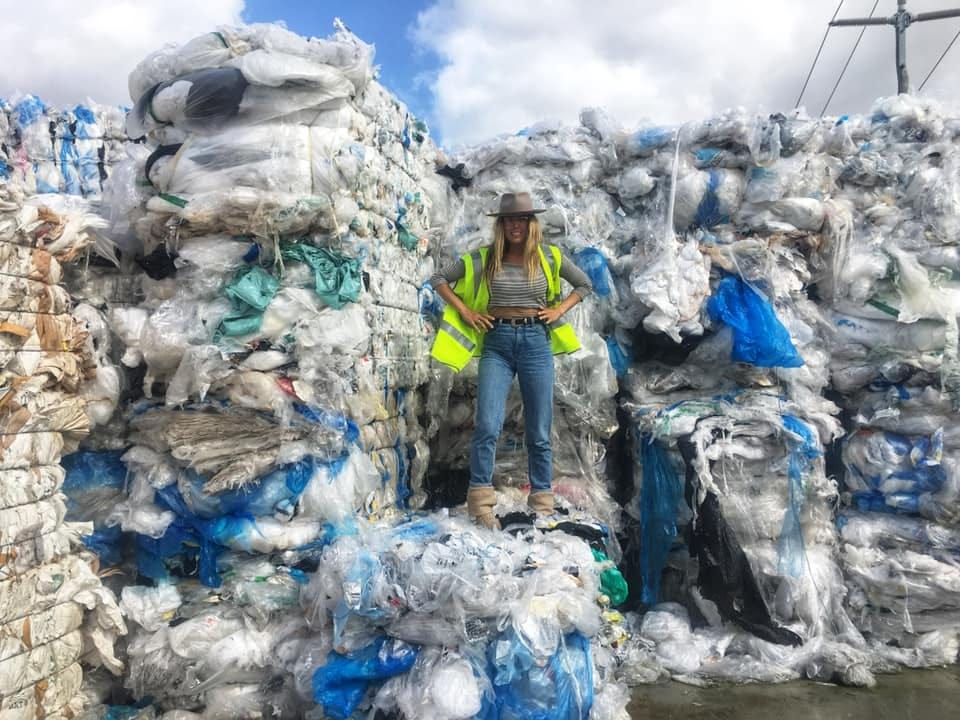
Wow! Can you tell us a story about a particular individual who was impacted by this cause?
Ten years ago, when I founded the “Save the Mermaids” nonprofit to educate people about the impacts of plastic. I invited my best friend’s to join me and spreading the word as mythical charismatic mermaids. I taught my girlfriend’s that plastic does not biodegrading, and they were shocked and horrified. It was an awakening for all of us, and I couldn’t have done it without them.
There were about ten of us, and now years later, three of us are still working on ocean conservation. Myself, Kaia, who is head of “Save the Mermaids,” and Emma. Emma invented a collapsible, reusable straw. I’m so proud of her.
Emma and I went on to travel around Central and South America with other mermaid girlfriends. We traveled around Central and South America and had a hilarious Adventures avoiding straws and cleaning beaches.
Imagine the seeds we are planting and used as we empower each other to stand up for the planet, make sacrifices for our world by sacrifice sacrificing comforts in our daily lives. This little seed was planted in Emma 10 years ago, and now she is an incredible inventor, business owner, and planet saver. I’m so proud of her.
Was there a tipping point the made you decide to focus on this particular area? Can you share a story about that?
The tipping point that made me focus on conservation began 11 years ago when I was volunteering for the ocean conservation nonprofit called Jean-Michel Cousteau Ocean Futures Society.
I learned that plastic does not biodegrade and that it was collecting out in our ocean in Whirlpool like systems called gyres. When the currents all converge in the middle of the seas between continents, they create this whirlpool-like system where all of the trash that’s in the oceans that’s traveled along the rivers traveled out by the currents into the gyre State collect.
It creates dead zones. We’re nothing very little can survive. Moreover, the plastic does not biodegrade, but it photodegrades, meaning it breaks up into tons of tiny small pieces that are impossible to clean up as they are the same size as Plankton and phytoplankton and zooplankton. Here I was fresh out of college where I used red Solo cups at every party and brought plastic water bottles to yoga class and drank out of plastic smoothie cups with plastic straws every day.
I realized that I was contributing to the trash that was killing my most favorite part of our planet, the ocean.
So I went out on a research vessel with the University of Hawaii Manoa to see the Great Pacific trash gyre for myself. I gathered a sample from the ocean there and was horrified to see that it was, in fact, a soup, dense with small plastic bits. I decided that of all the things happening to the planet, this was something that I could change. My contribution to plastic pollution could stop. I stopped allowing plastic bags, cutlery, takeaway food containers, coffee cups, smoothie cups, all party cups, straws, and plastic water bottles in my life.
Are there three things the community/society/politicians can do help you address the root of the problem you are trying to solve?
Absolutely. There’s a great analogy used in Plastics. If your bathroom sink is overflowing, you don’t reach for the mop to soak up the overflow, you turn off the tap. This is what we need to do with plastics.
1) We need to stop the plastic at its source and lobby for less plastic production. An increase in recycled plastics would be beneficial — anything to prevent further extraction of these petroleum-based items that are polluting our environment that we all rely upon to survive.
2) Corporations must produce less plastic packaging, less plastic products, and especially, stop using virgin plastics for their materials. We need more laws and enforcement of said laws to restrict the irresponsible distribution of plastic.
3) We need greater regulation of full lifecycle analysis for product duration. Effectively closing the loop on products that are bad for the environment. This didn’t seem to be a problem since we thought recycling worked, however now that we know recycling is broken, we need more systems in place that actually work.
Our community, society, and our politicians have a lot to do to address the root of this problem.
What specific strategies have you been using to promote and advance this cause? Can you recommend any good tips for people who want to follow your lead and use their social platform for social good?
I am extreme. I don’t use any single-use plastic. I make everything from vegan treats and deodorant to mascara and toothpaste, which inspires others to reevaluate their lifestyle. My extreme ways put people’s consumption into perspective. Since I have plastic hacks for everything, my platform is incredibly informative, and people can choose what works for them.
I offer hacks in many forms: new plastic-free recipes, tales from my mermaid adventures, ways to stay healthy, updates in the world regarding plastic policy change, resources to become environmental activists, and everyday plastic hack tips.
For anyone looking to use their platform for social good, I recommend leading by example.
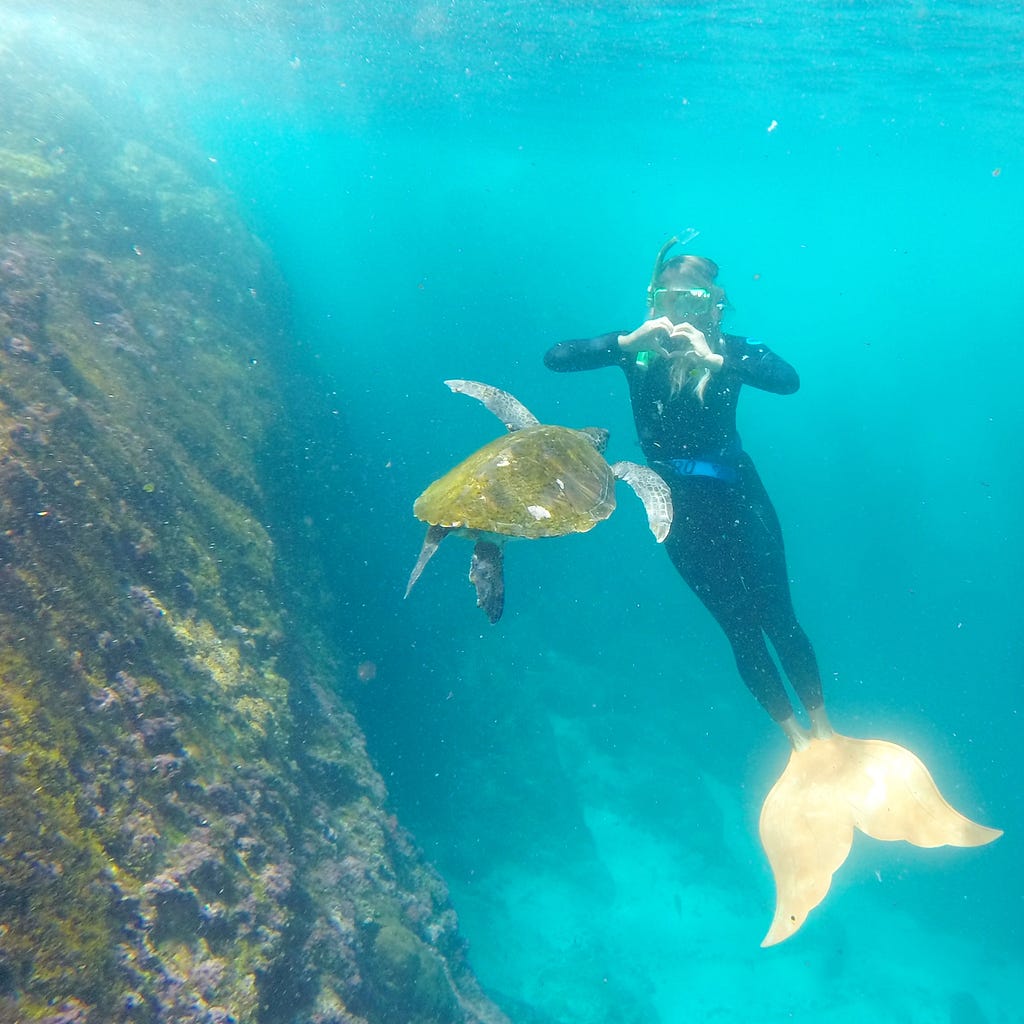
What are your “5 things I wish someone told me when I first started”?
1) Release attachment to perfection; keep moving forward.
2) Do yoga every day.
3) Get your finances organized straightaway. If you don’t understand what needs to happen, hire someone. Find someone who will do it for your tiny budget. Even if it’s $5.
4) Set goals for your personal life and your career, and don’t be attached to reaching them as long as you’re always growing and you are doing well.
5) Find what you’re good at and what you love. DO THAT. Hire others to do the rest.
You are a person of enormous influence. If you could inspire a movement that would bring the most amount of good to the most amount of people, what would that be? You never know what your idea can trigger. 🙂
If I could inspire a movement it would be for people to give up plastic. Our planet is dying and we need to stop plastic production and close the loop on products that are bad for the environment.
Can you please give us your favorite “Life Lesson Quote”? Can you share how that was relevant to you in your life?
My favorite “Life Lesson Quote” is a poem by Walt Whitman on living a vibrant and rewarding life. It became a ritual when I read it. It reminded me to stay my course, regardless of how my path compared to others around me. That what we know to be “normal” is not necessarily right. It reminded me to question everything and to trust my instincts.
“This is what you shall do; Love the earth and sun and the animals, despise riches, give alms to every one that asks, stand up for the stupid and crazy, devote your income and labor to others, hate tyrants, argue not concerning God, have patience and indulgence toward the people, take off your hat to nothing known or unknown or to any man or number of men, go freely with powerful uneducated persons and with the young and with the mothers of families, read these leaves in the open air every season of every year of your life, re-examine all you have been told at school or church or in any book, dismiss whatever insults your own soul, and your very flesh shall be a great poem and have the richest fluency not only in its words but in the silent lines of its lips and face and between the lashes of your eyes and in every motion and joint of your body.”
― Walt Whitman
Is there a person in the world, or in the US whom you would love to have a private breakfast or lunch with, and why? He or she might just see this, especially if we tag them. 🙂
Paul Hawken. I would love to be inside his brain! I’d love to hear about the research that went into his 100 solutions to reverse global warming and have him explain each of them.
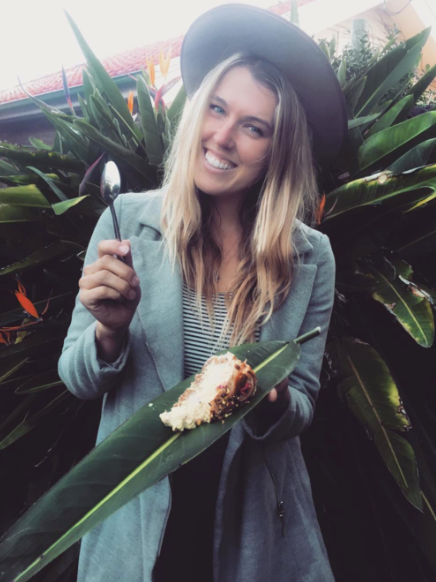
How can our readers follow you on social media?
Follow me on Instagram at @plasticfreemermaid
Subscribe to my Plastic Free Mermaid YouTube Channel
Read my blog at iquitplastics.com
Thank you for joining us!
The Social Impact Heroes of Social Media: “If your bathroom sink is overflowing, you don’t reach… was originally published in Authority Magazine on Medium, where people are continuing the conversation by highlighting and responding to this story.

